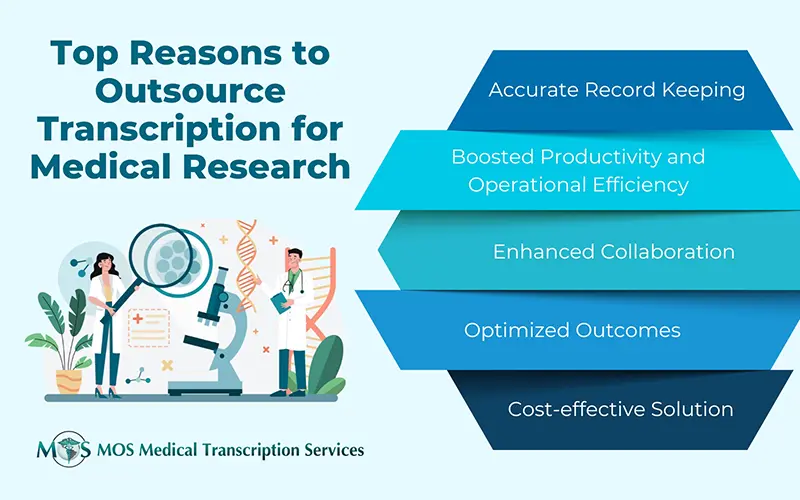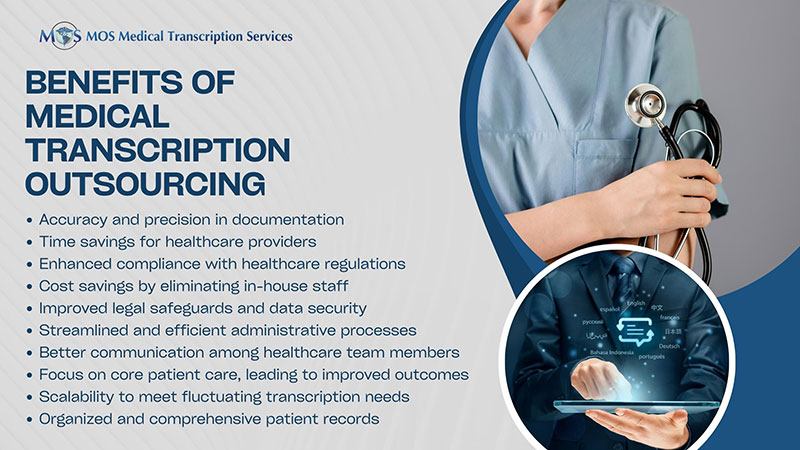
Table of Contents
Complete medical records are foundational to quality healthcare. They provide a comprehensive picture of a patient’s health journey, support accurate diagnoses and treatments, and reduce the risk of medical errors. Most healthcare organizations choose to partner with a medical transcription company to ensure proper documentation of patients’ medical history, treatments, and progress. Given the importance of good medical record keeping, it is easy to understand the consequences of incomplete patient documentation.
“Missing information in the electronic health records (EHR) that hospitals and doctor’s offices keep is like a leaking pipe”, according to a study from UCF’s School of Global Health Management and Informatics. The article notes that studies show that missing data in medical records impacts hospitals’ revenue cycle and can lead to an average loss of about $5 to $8 million a year.
A study published in the Journal of General Internal Medicine revealed a link between incomplete medical notes and increased hospital stays and costs. Based on an analysis of more than 20,000 hospital admissions, the study found that incomplete documentation was associated with a 0.4-day longer hospital stay and an additional $1,386 in costs per patient.
What is an Incomplete Medical Record?
An incomplete medical record is one that fails to tell the patient’s whole story. Such records may miss critical data, such as diagnosis details, treatment plan, or necessary signatures, lacking clarity and specificity. Incomplete medical records compromise patient safety and care quality, leading to serious legal consequences for healthcare providers.
Under the Comprehensive Error Rate Testing (CERT) program, reviewers determine claims have errors when the medical documentation submitted is insufficient:
- to support Medicare payment for the services billed
- the services were provided at the level billed, or
- the services were medically necessary
CERT audits determine insufficient documentation errors as including the following:
- Incomplete progress notes (e.g., unsigned, undated, insufficient detail, etc.).
- Unauthenticated medical records – no provider signature, no supervising signature, illegible signatures without a signature log or attestation to identify the signer, an electronic signature without the electronic record protocol or policy that documents the process for electronic signatures.
- No documentation of intent to order services and procedures – incomplete or missing signed order or progress note describing intent for services to be provided.
Not documenting the patient’s chief complaint (CC) is also indicative of incomplete documentation. The CC should be a succinct statement describing the symptom, problem, condition, diagnosis, or other factors that are the reason for the encounter, usually stated in the patient’s own words. Every level of patient history taken for an Evaluation and Management (E/M) service requires a CC.
Impact of Incomplete Medical Records
Incomplete medical records have far-reaching consequences, impacting both healthcare providers and patients. For providers, the effects include:
- Misdiagnosis and Inappropriate Treatment: A lack of complete information may prevent physicians from fully understanding a patient’s condition, potentially leading to misdiagnoses and unsuitable treatment plans.
- Increased audit risk: Incomplete medical documentation increases the risk of audits and investigations, which is costly and time-consuming.
- Legal and Regulatory Risks: Failure to maintain comprehensive records can result in non-compliance with legal and regulatory standards, increasing the risk of lawsuits and penalties.
- Financial Implications: Accurate medical records are critical for billing. Incomplete documentation can lead to billing errors and claim denials, disrupting the revenue cycle and causing financial losses.
- Patient Safety Concerns: Missing details may contribute to treatment errors, endangering patient safety and outcomes.
- Delays in Care: Inadequate records can slow down the care process, as medical staff must spend additional time gathering necessary information to proceed.
- Affects Research: Incomplete medical records significantly affect research by introducing bias, reducing the reliability of study results, and potentially leading to inaccurate conclusions due to missing data.
Completing medical notes in a timely and accurate manner is crucial for providing quality patient care, ensuring legal compliance, receiving proper and timely reimbursement, and maintaining efficient workflow. So what are the factors responsible for incomplete medical records?
Incomplete medical records can result from:
- Human Error: Healthcare professionals may unintentionally omit or misrecord information, leading to inaccurate records.
- Technological Limitations: EHR system glitches or software issues can disrupt data recording, creating gaps in patient records.
- Insufficient Training: Lack of proper training on documentation practices can lead to missed details or errors in records.
- Overworked Staff: Heavy workloads and tight schedules may cause staff to rush or neglect thorough record-keeping.
Let’s now delve into what comprises a complete medical record and the best practices for ensuring its accuracy and comprehensiveness.
Complete Medical Records: Key Components and Best Practices
Typical medical records include:
- Patient identification, contact information, and date of birth
- Reasons for current visit
- List of current and chronic ailments and diagnoses
- Treatment plan, agreed actions, and recommendations
- Current medications list with dosage
- Documented allergies and sensitivities
- Billing and health insurance details
- Immunization records including past dates and outstanding needs
- Instructions and educational info given to patient
- Documentation of communication with the patient’s family/friends
- Recommended return visit date
After the event, information should be entered in the record in a timely manner to relevant staff member. Any delay in the time of the event should be recorded. Other best practices include:
- Standardized Forms: Using consistent forms ensures uniform documentation and minimizes the risk of missing key details.
- Clear Documentation Guidelines: Establishing comprehensive guidelines helps ensure all necessary information is included and complies with legal requirements.
- Staff Training: Ongoing training ensures healthcare staff are up-to-date on documentation standards, legal obligations, and software use.
- Regular Audits: Conducting audits identifies gaps in documentation, improves practices, and ensures compliance with legal standards.
It’s also important to ensure objective comments, document any noncompliance, oral communications and informed consent, and state any objections regarding case management. The documentation should include the name and designation of the person making the entry and their electronic signature.
While EHRs are designed to ensure complete and accurate medical record keeping, most physicians find data entry a hassle. Outsourcing medical transcription to a reliable service provider is a practical strategy to ensure high quality, compliant documentation.


